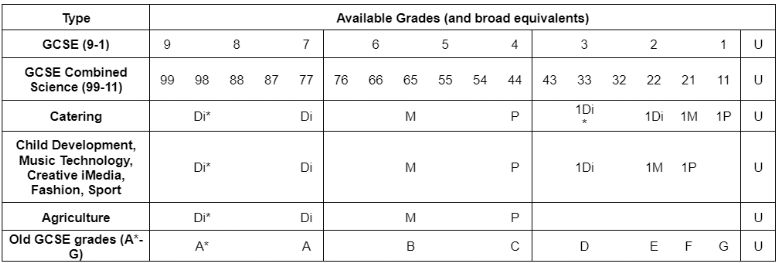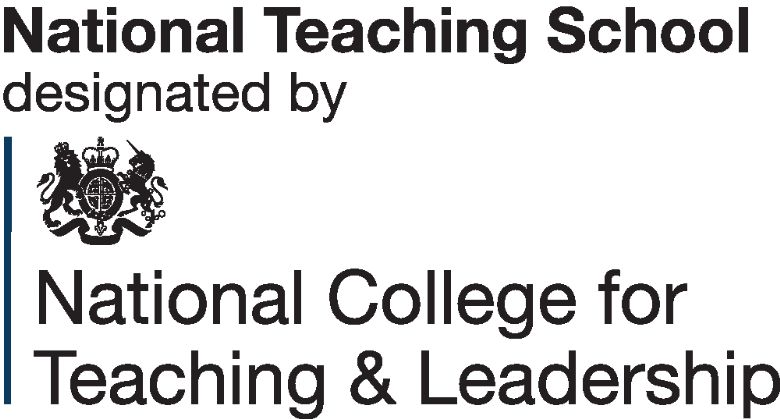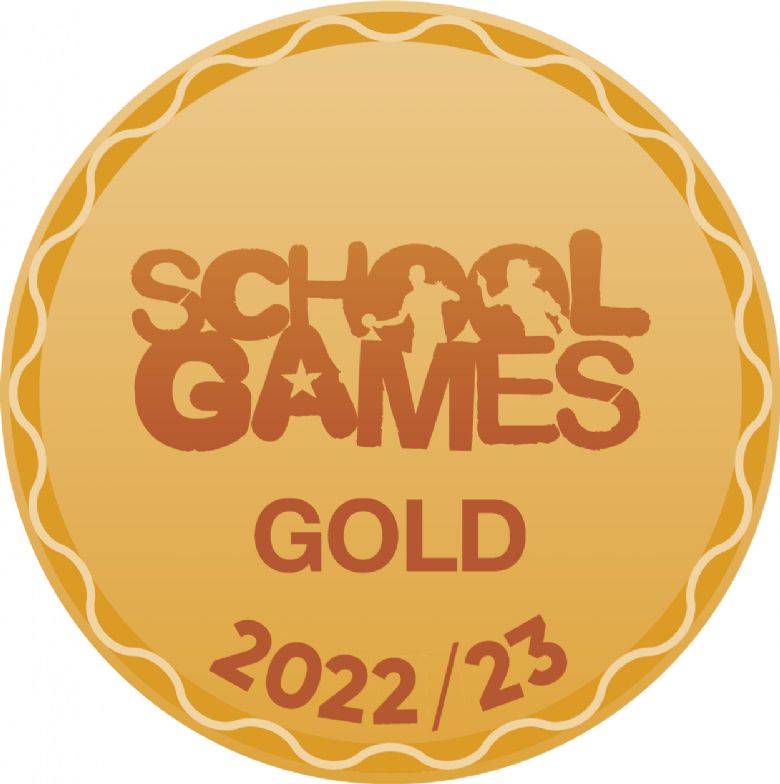School Reports
School reports are issued at Redborne regular intervals and are designed to both inform parents/students about the outcomes we’re expecting from them based on their current progress, but also to provide advice on the key things we believe they could do to help improve those outcomes.
This webpage is designed to be read alongside a school report and provides additional information to help you understand what each of the key sections means.
Attendance, Behaviour Points and Achievement Points
Why attendance matters…
National data is very clear about the link between good attendance and good outcomes and our own internal data supports this. Students who are absent for more than 12 days a year perform significantly worse than those who do not, decreasing their chances of obtaining a Grade 5 in English and Maths by 28%, as shown in the graph below:
Achievement and Behaviour Points
Our Redborne values are ‘Aspiration’, ‘Responsibility’, and ‘Respect’. We expect all of our students to exhibit and display these values in their daily life at school.
Students can be awarded one or two achievement points by any member of staff who sees them displaying one of our values through their effort, participation, or actions throughout the school day, both in and out of lessons.
Students receive behaviour points when they are subject to our behaviour system, and this works on a scale:
- Warning – 0 points
- Detention – 1 point
- Removal – 2 points
- Day in BASE – 3 points
- Suspension – 4 points
Our reward system recognises students’ achievements in relation to our values. As part of this, every two weeks, students’ achievement points and behaviour points are collated. Behaviour points have a negative value and will reduce the total score when added to achievement points. The top three students in each tutor group are entered into a prize draw to win an Amazon voucher.
Sixth form attendance
Redborne takes attendance in the Sixth Form very seriously and we acknowledge that good school attendance plays an essential part in academic development for post 16 students. Sixth Form students should strive to achieve consistently good attendance as poor attendance will affect academic attainment. Students should, therefore, aim for at least 95% attendance for the year. An exemplary record of attendance says a huge amount about the student as a person: that they are dedicated, well-motivated, organised and someone who takes their responsibilities seriously.
Guide to attendance colour coding:
![]() Attendance is less than 90%
Attendance is less than 90%
![]() Attendance has dropped by 5% or more since the last report
Attendance has dropped by 5% or more since the last report
Values Grade
At Redborne we focus on three key values that we believe support all learners in fulfilling their potential; these are responsibility, respect and aspiration.
We use these values to shape the common expectations that are necessary for students to be successful in lessons. These expectations are grouped into “Readiness to Learn”, the non-negotiables required for students to be able to fully engage in lessons, and the “Skills to Succeed”, the extra things that students must aim to do in order to truly fulfil their potential.
These are summarised below:
In the reporting process teachers award a grade, using their professional judgement, of the students performance against these values in their subject area. This is a “best fit” measure using the following overall descriptors:
| Values Grade | Descriptor |
|---|---|
| A | Consistently strives for excellence in most or all values |
| B | Attempts the majority of the values, some scope for improvement |
| C | Inconsistent efforts towards values, requires improvement |
| D | Rarely demonstrates attempt, significant improvement needed |
| X | Too many absences to make a valid comment. |
In addition to this, each teacher will provide a focus. This provides guidance on a specific area from the “Readiness to Learn / Skills to Succeed” that the teacher believes the student should work on in order to have the biggest positive impact on their progress.
The breadth of courses that we offer mean that the exact expectations and interpretation of the values will vary subtly from subject to subject. To help you understand this, there is additional subject specific guidance available here.
Year 9 Progress Grade
In order to produce a progress grade, we take the recent assessments of each student in each subject and compare them to a group of Redborne students with a similar starting point.
| Grade | Descriptor |
|---|---|
| Exceptional Progress | The student has performed significantly above the average of their group of similar students. |
| Expected Progress | The student has made a good start at Redborne and has made the progress we would normally expect, based on previous attainment. |
| Limited Progress | The student has performed significantly below the average of their group of similar students. |
Each subject teacher is asked to quality assure this measure and ensure that it accurately reflects the progress the student has made by taking into account a more holistic view of their work beyond the main assessment.
Target Grade
To calculate a target grade we look at the prior attainment of each student and see how similar students have performed historically in that subject. Whilst this is not an exact measure for your child, by comparing to results obtained by similar students nationally we can at least share with you an indication of what they should be aiming for.
| Level | Prior Attainment Measure |
|---|---|
| Key Stage 4 (exams 2025 and 2026) |
Whilst we would typically base target grades on Key Stage 2 results, as a result of COVID we do not have this information. Instead your child sat a CATS test at the start of year 9 and we use this as a starting point. |
| Key Stage 4 (all other cohorts) |
The target grade is based on a comparison of other students with similar Key Stage 2 results. |
| Key Stage 5 | The target grade is based on a comparison of other students with similar Key Stage 4 results. |
At Redborne we choose to set aspirational targets for students as we believe that by setting goals that are achievable but challenging we are encouraging them to strive to be their best. Typically around 30% of students would achieve these aspirational targets nationally, although hard work from the student and attendance at an above average school dramatically improves their chances.
Predicted Grade
During the school year teachers will perform a number of class assessments depending on the nature of the subject including tests, performances, practical demonstrations and coursework. We use this information to forecast how we think each child will do at the end of their current course; this prediction takes into account the overall ability of the year group, the progress that individuals typically make in each subject at Redborne and the performance of your child on the assessments they recently completed.
These predicted grades are not a measure of current attainment; they are the grade we believe the student will receive at the end of the course, assuming that they maintain their efforts over the coming months. More importantly, they are also not a precise prediction. If your child works hard, using tried and tested learning techniques which we teach in school, they have the capacity to exceed their predicted grades.
Please note that on occasion, if your child has missed recent assessments and not had an opportunity to catch up, it may be necessary to give them an X grade.
To help you understand the predicted grades we have colour coded them. The colours mean that if your child continues to make progress at their current rate then at the end of the course we expect them to:
| Meet or exceed their aspirational target grade in this subject. | |
| Make nationally expected progress in this subject. | |
| Fall below nationally expected progress, but improved effort can address this. |
Supplementary Information for Key Stage 4:
This table shows the available grades for each subject.

PE (Core) Progress Grades
In order to produce a progress grade, we take the recent assessments of each student in PE and compare them to a group of Redborne students that attained similar PE marks in Year 9.
Next Steps
Key Stage 3:
What to do if your child’s values grade isn’t where you’d like it be:
- It’s important to find out why this grade was given, so you can identify exactly what can be done. Speak with the classroom teacher, or encourage your child to, as they will be able to help you with this.
- Encourage personal goals, making them manageable and short term. For example, this lesson I’m going to try and answer a question or this week I’m going to start moving before the bell so that I’m not late to a single lesson.
How to support your child’s learning at home
Different strategies will work with different students in different subjects. A few small changes can make a big difference to performance. Here are some ideas:
| Please encourage and support reading. Reading for 20 minutes, 3 times per week will support learning in all subjects. | Limiting use of games consoles may free up some time to read. | Talk to your child about what they are reading - can they summarise the main points for you? This makes them think about what they are reading. |
| Where possible, provide a quiet area to work, and discourage any use of social media whilst school work is being done. We have a study club in the library after school if you don’t have space at home. |
Encourage your child to review what they have done in class over the past month. Use BBC Bitesize to support learning – there are useful quizzes, notes and animations that help with understanding and recall. |
Students need to be able to concentrate without distraction and to self-regulate their mobile phone use. Encourage use of the Flora or Forest apps - they switch off all notifications for a set period and keep a log of hours worked. |
| Encourage your child to look through class notes and highlight key facts. Turn these facts into questions. | Making revision cards helps. (Chop A4 card into 4). Can you test your child on these or can they work with a friend? |
Revision cards should have questions on one side with the answer on the back. Don’t make cards full of facts as these are far less effective. |
| Motivation is key - remind your child that there is always time to improve and every little helps. | For example, if your child does 20 minutes of extra maths, 3 times per week, then over the year this adds up to an extra 40 hours of maths. An easy win! | Being organised helps motivation: help your child to organise class notes and keep their books and resources safe. |
Please help your child to have the right books and equipment every day and talk to them about how lessons are going. If a child feels he is not making progress, ask why. An honest approach is needed and you may wish to ask your child to speak to their subject teacher or tutor who can speak for them.
If you wish to contact a subject teacher, then email is best. Please see the Contact Us section of the website for details.
Key Stage 4:
What to do if your child’s effort grade isn’t where you’d like it be:
- It’s important to find out why this grade was given, so you can identify exactly what can be done. Speak with the classroom teacher, or encourage your child to, as they will be able to help you with this.
- Encourage personal goals, making them manageable and short term. For example, this lesson I’m going to try and answer a question or this week I’m going to start moving before the bell so that I’m not late to a single lesson.
What to do if your child is not yet doing as well as they had hoped in any subject
Different strategies will work with different students in different subjects. A few small changes can make a big difference to performance. Here are some ideas:
|
Please encourage and support reading. Reading for 20 minutes, 3 times per week will support learning in all subjects. |
Limiting use of games consoles may free up some time to read. |
Talk to your child about what they are reading - can they summarise the main points for you? This makes them think about what they are reading. |
|
Where possible, provide a quiet area to work, and discourage any use of social media whilst school work is being done. We have a study club in the library after school if you don’t have space at home. |
Check revision guides are used; set texts are read regularly - certainly more than once and the poetry anthology is out on the side for regular reading. |
Students need to be able to concentrate without distraction and to self-regulate their mobile phone use. Encourage use of the Flora or Forest apps - they switch off all notifications for a set period and keep a log of hours worked. |
|
Encourage your child to look through class notes and highlight key facts. Turn these facts into questions. |
Making revision cards helps. (Chop A4 card into 4). Can you test your child on these or can they work with a friend? |
Revision cards should have questions on one side with the answer on the back. Don’t make cards full of facts as these are far less effective. |
|
Motivation is key - remind your child that there is always time to improve and every little helps.
|
For example, if your child does 20 minutes of extra maths, 3 times per week, then over the year this adds up to an extra 40 hours of maths. An easy win! |
Being organised helps motivation: help your child to organise class notes and keep their books and resources safe. |
Please help your child to have the right books and equipment every day and talk to them about how lessons are going. If a child feels he is not making progress, ask why. An honest approach is needed and you may wish to ask your child to speak to their subject teacher or tutor who can speak for them.
If you wish to contact a subject teacher, then email is best. Please see the Contact Us section of the website for details.
Key Stage 5:
What to do if your child’s effort grade isn’t where you’d like it be?
- It’s important to find out why this grade was given, so you can identify exactly what can be done. Speak with the classroom teacher, or encourage your child to, as they will be able to help you with this.
- Encourage personal goals, make them manageable and short term. For example, this lesson I’m going to try and answer a question or this week I’m going to start moving before the bell so that I’m not late to a single lesson.
What to do if your child is not yet doing as well as they had hoped in any subject?
Different strategies will work with different students in different subjects. A few small changes can make a big difference to performance.
|
Please encourage and support reading around the subject. Reading sources, other than the textbook, for 20 minutes, 3 times per week. |
Students need to be able to concentrate without distraction and to self-regulate their mobile phone use. Encourage use of the Flora or Forest app. These apps switch off all notifications for a set period and allow students to keep a log of hours worked. |
Where possible, provide a quiet area to work, and discourage any use of social media whilst school work is being done. |
|
Making revision cards helps. (Chop A4 card into 4). Can you test your child on these or can they work with a friend? |
Encourage your child to look through class notes and highlight key facts. Turn these facts into questions. |
Revision cards should have questions on one side with the answer on the back. Don’t make cards full of facts as these are a far less effective way to learn. |
|
Motivation is key-remind your child that there is always time to improve and every little helps. |
Being organised helps motivation: encourage your child to organise class notes and keep their books and resources safe. |
Each subject has one lesson on their timetable that is for personal study, encourage your child to plan this time so that it has maximum impact. |
If your child feels they are not making progress, ask why. An honest approach is needed and you may wish to ask your child to speak to their subject teacher or tutor who can speak for them.
If you wish to contact a subject teacher, then email is best. Please see the Contact Us section of the website for details.









